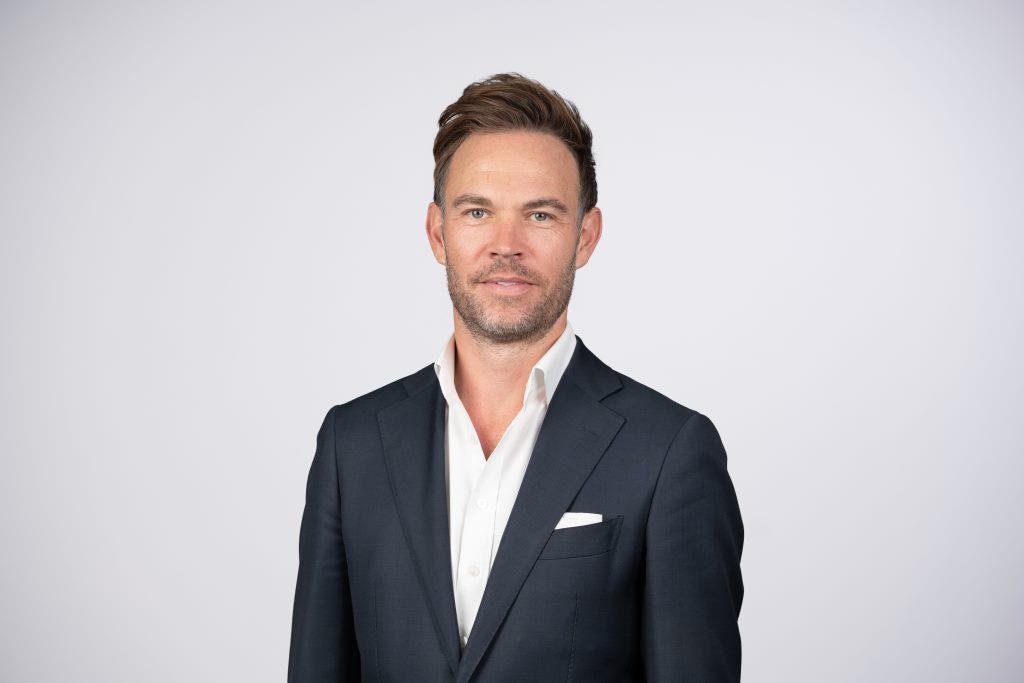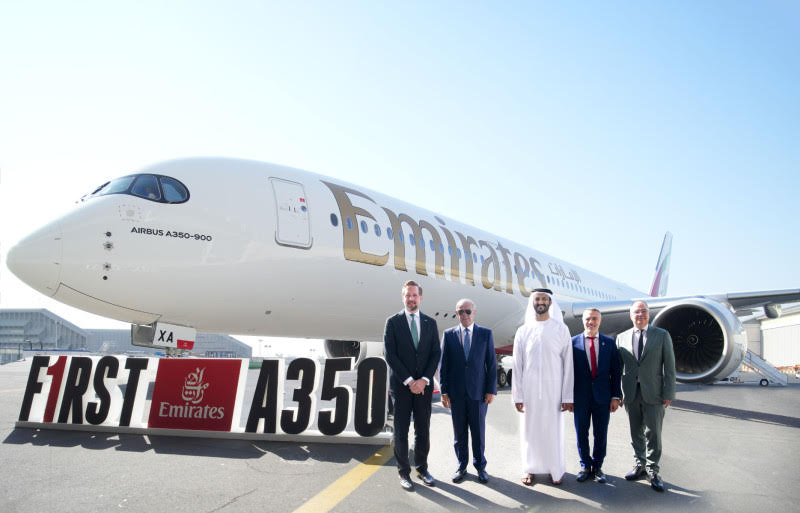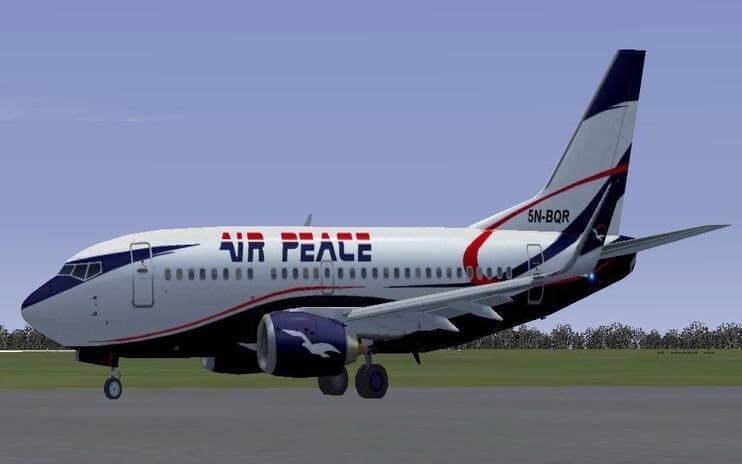Travel/Tourism
Investment Key to Future Growth for Global, African Aviation

The aviation sector’s recovery from COVID-19 has been remarkable, with revenue passenger kilometres (RPKs) and available seat kilometres (ASKs) reaching close to pre-pandemic levels, according to the International Air Transport Association (IATA). In the fourth quarter of 2023, traffic was at 98.2% of pre-pandemic numbers. Additionally, the sector is expected to experience record fleet and maintenance, repair, and overhaul (MRO) growth this year.
Oliver Wyman’s latest Global Fleet and MRO Market Forecast predicts that the number of commercial aircraft worldwide will expand at a compound annual growth rate (CAGR) of 2.5%, reaching more than 36,400 aircraft by the start of 2034. This represents a 28% increase over the current fleet of around 28,400 aircraft. The forecast also indicates that global MRO spending is expected to reach US$104 billion, surpassing the pre-pandemic peak in 2020. That spending will still, however, fall short of demand. By 2034, MRO demand worldwide is projected to reach US$124 billion.
In Africa, the fleet is expected to grow about 25% by 2034, reaching over 1,400 aircraft. The largest growth is projected to occur between 2029 and 2034, with a CAGR of 2.7%. For example, South African Airways has announced plans to expand its fleet to approximately 40 aircraft over the next decade, from just 13 today.
“The growth in Africa reflects an expected expansion of demand. Figures from IATA show that African passenger numbers will nearly double by 2035. This will require airlines to continue to invest in expanding their fleet, as well as looking at new routes to add to their network,” says Paul Calvey, Oliver Wyman Partner and Head of its operations in South Africa.
But while the global and African numbers reflect growth, they fall short of pre-pandemic predictions. Before the pandemic, it was anticipated that the global aircraft fleet would reach 36,000 by 2030. Now, it is unlikely to reach that size before 2036, resulting in a six-year setback in industry growth due to COVID-19. From an African perspective, this slow recovery is particularly understandable. Several African airlines folded as a result of the COVID-19 pandemic, and in 2020 alone, the continent’s aviation sector lost US$7.7 billion in revenue.
This highlights the magnitude of the setback caused by COVID-19. Additionally, the current global fleet size isn’t significantly higher than the 27,492 aircraft that were in service in 2019. To regain its previous trajectory, the aviation sector will require significant investment, much of which will depend on global economic growth.
Investment challenges in the aviation industry
The forecast identifies several challenges that hinder investment in the aviation sector. These include the impact of COVID-19, inflation, and shortages of skilled labour, raw materials, and aviation maintenance technicians (AMTs) and engineers. The industry must modernise and optimise production along the supply chain, while the MRO support network faces similar challenges in keeping aircraft operational.
“While the industry must invest in overcoming those challenges, it’s important to remember that it’s not easy for it to do so at present, according to a number of trends,” says André Martins, Partner and Head of Transportation and Services for India, Middle East, and Africa regions (IMEA) at Oliver Wyman.
He continues that “rapidly rising interest rates have made borrowing far more expensive than it was pre-pandemic. Mounting inflation, meanwhile, has created significant wage pressure across the industry. In the US, for instance, captains’ salaries at mainline airlines increased by 46% between 2020 and 2023, while those flying for US regional airlines saw their wages rise by 86%. Furthermore, this inflationary environment has led to higher costs for aircraft components and other supplies compared to before the pandemic.”
Other cost factors, such as escalating conflicts in the Middle East and attacks on ships in the Red Sea, have led to increased aviation fuel prices. Although prices are lower than in 2022, industry players remain cautious about potential further increases.
Gearing up for global growth
Despite the current challenges, there are indications that conditions may improve, facilitating investment in the aviation sector. While global economic growth is currently at its lowest level since the 1990s, the outlook is becoming more positive. Inflation is expected to ease, and the US economy is projected to experience a soft landing. Although major economies like China still face economic headwinds, the global economy is likely to avoid recession.
This positive outlook will eventually enable central banks to reduce interest rates, making borrowing cheaper and enabling crucial investments in the aviation sector.
“Investment is necessary not only to address labour and supply chain optimisation challenges but also to meet the increasing pressure for environmental sustainability. This includes investing in sustainable aviation fuel (SAF), which can significantly reduce emissions,” Martins says.
Maximising available opportunities
By maximising the available opportunities in Africa, such as collaboration on infrastructure development and investment in African airlines, the industry can not only recover but thrive in the coming years. Investors and policymakers also have a role to play in supporting sustainable growth through policies that incentivize investment in new technologies and skilled labour.
Travel/Tourism
Musawa, Governor Mba Commission Enugu Christmas Village

By Dipo Olowookere
The Enugu Christmas Village has been commissioned by the Minister of Arts, Tourism, Culture, and the Creative Economy, Ms Hanatu Musawa; and the Governor of Enugu State, Mr Peter Mba.
This development officially kicked off the holiday season in the state, giving residents and others from across Nigeria and outside the opportunity to relax in an atmosphere of love, positioning Enugu as a key destination for cultural and holiday tourism.
Facilitated by Omu Resort, a leading tourism promoter in Africa, the Enugu Christmas Village is set to become the heartbeat of holiday celebrations in the state.
The company has already organised a 25-day festival at the village designed to attract residents, visitors, and dignitaries from across the region.
With its vibrant atmosphere and festive attractions, the Enugu Christmas Village boasts an array of attractions such as a waterpark, roller skating, archery, amusement rides, and much more.
At its centre is a breathtaking display of 500,000 Christmas lights, illuminating the village in a magical glow that promises to captivate visitors of all ages.
The festival goes beyond the lights and rides, offering a rich tapestry of events that celebrate the state’s cultural heritage.
Highlights include Afrobeat Concert, Praise Night, Highlife Concert Street Carnival, Cultural Parade and a Grand Fireworks Show.
One of the most anticipated moments is the Santa Street Storm, where over 100 Santa Claus figures riding tricycles will parade through the streets, distributing gifts to orphanages and the less privileged, spreading joy and goodwill.
Running from December 7 to December 31, 2024, the Enugu Christmas Festival is more than just a celebration of the holiday season. It underscores the state’s cultural vibrancy and its potential as a leading tourist destination.
The festival offers a unique opportunity for families and friends to come together, celebrate, and unwind in a festive atmosphere. It is also expected to fosters unity and showcases the rich cultural heritage of Enugu State, while promoting arts, tourism, and community well-being.
Travel/Tourism
Emirates Unveils Airbus A350-900 in Dubai

By Aduragbemi Omiyale
One of the leading airline operators, Emirates Airline, has officially unveiled its first Airbus A350-900 at an exclusive event showcase in Dubai attended by aerospace partners, government officials and dignitaries, members of the media, as well as aviation enthusiasts.
The Emirates A350 features three spacious cabin classes, accommodating 312 passengers in 32 next-generation Business Class lie-flat seats, 21 Premium Economy seats and 259 generously pitched Economy Class seats.
The latest onboard products reflect the airline’s commitment to delivering a premium passenger experience while optimising operational efficiency. The Emirates A350 is the first new aircraft type to join Emirates’ fleet since 2008.
Apart from its newly delivered A350, Emirates operates two other aircraft types around the world to 140 destinations – the widebody Boeing 777 aircraft and the iconic ‘double decker’ Airbus A380 aircraft.
The A350’s introduction will enable Emirates to expand into new destinations globally, including mid-sized airports unsuited for larger aircraft. The Emirates A350 will be delivered in two versions – one for regional routes and one for ultra long-haul routes.
The Emirates A350 takes technology to another level. Customers can now adjust their electric window blinds at the touch of a button.
The aerBlade dual blind system will feature in Business and Premium Economy Class offering two shaded options, and the aerBlade single blind systems will make a debut in Economy Class, with all blinds showing the Emirates Ghaf tree motif when closed.
Business Class on the Emirates A350 will feature 32 luxurious leather ‘S Lounge seats’, inspired by the Mercedes S Class for an exceptional travel experience. The A350 aircraft will feature brand new additions of wireless charging on the side cocktail table in Business Class, and in-seat lighting controls with 5 streams of light. The 1-2-1 seat configuration in the A350 Business Class ensures a very private, exclusive experience.
Speaking at the event, the chairman of Emirates Airline, Mr Ahmed bin Saeed Al Maktoum, said, “Today is an exciting milestone for Emirates as we showcase our first A350 and usher in a new era for our fleet and network growth.
“This aircraft sets the stage for Emirates to spread its wings farther by offering added range, efficiency and flexibility to our network, enabling us to meet customer demand in new markets and unlock new opportunities in the cities that we serve.
“Onboard, our updated interiors and seating configurations will help us deliver a more elevated and comfortable experience to travellers across every cabin class.
“The 65 Emirates A350s joining our fleet in the coming years fit into the airline’s broader plans to support our visionary leadership’s Dubai’s D33 Strategy, which will transform the city into a pivotal hub in the global economy by expanding its connectivity and reach.”
Travel/Tourism
Air Peace Employees Undergo Training at Boeing Global Learning Institute

By Aduragbemi Omiyale
Some employees of Air Peace have upgraded their aviation safety skills at a training course organised by Boeing through the Boeing Global Learning Institute (BGLI) in collaboration with Cranfield University, United Kingdom as part of a shared commitment to shaping the future of aviation leadership.
Over the years, Air Peace has recognized that a deep, unwavering commitment to safety is key to its continued success.
The programme is aimed at building upon that vision, enabling executives to lead with confidence, manage risks effectively, and create high-performing teams that prioritize safety at every level.
In the five-day in-person training, all the executives and others in the various departments of Air Peace were taught advanced safety leadership skills and gained practical tools to implement the new knowledge.
The Head of Aerospace at Cranfield University, Prof Graham Braithwaite, said, “This collaboration ensured that the training directly addresses the challenges Air Peace faces, culminating in real-world capstone projects that would have a lasting impact.”
Reinforcing this position, the Lecturer for Organisational Resilience and Change at Cranfield School of Management, Fabian Steinmann, who was excited at the great progress Air Peace made over the years, said that they are happy to learn and share knowledge and find ways to strengthen the system, making it robust and flexible to adapt to the ever-changing environment.
“Safety is at the heart of everything we do at Cranfield so the privilege we have is that we travelled around the world, picked up the good practices, learned more about the culture and the operation in various countries so we’re here to facilitate that exchange with Nigeria and Air Peace to see how we share some of the good practices and lessons learned from all around the world and translate them into their operation.”
Also, the Senior Organisational Consultant and Programme Manager at Boeing Global Learning Institute, Harry Magui, said, “The Boeing company has long recognised the importance of supporting continuous learning of our aviation partners.
“To that end, the Boeing Global Learning Institute designs and delivers numerous learning programmes to both emerging and established leaders of our partners.
“These efforts aim to develop leadership, business, and technical skills so that our partners can improve their business processes, increase operational efficiency and enable leaders to strengthen their teams to ultimately grow their business.’
Alluding to the great work Air Peace has done in making safety a pre-condition rather than just a priority, Magui said, “We’re here to partner with our great partner, Air Peace who have been phenomenal in advancing the Aviation Industry in Nigeria, so we are here to support them to harness more opportunities in the future with the Advanced Leadership in Safety Excellence Training for all its top leadership within the organization.”
The Safety Manager at Air Peace, Captain Godfrey Ogbogu, said, “This class is quite essential and we’re lucky to have our resource persons impact knowledge on us. It is a well-structured training, especially for Air Peace because of where we are now and where we hope to go in the future.
“The whole essence of this class is to reinforce what we know before and be exposed to other avenues of learning. The aviation industry is ever-changing and dynamic, and Air Peace has to be abreast of such developments.”
-

 Feature/OPED5 years ago
Feature/OPED5 years agoDavos was Different this year
-
Travel/Tourism8 years ago
Lagos Seals Western Lodge Hotel In Ikorodu
-

 Showbiz2 years ago
Showbiz2 years agoEstranged Lover Releases Videos of Empress Njamah Bathing
-

 Banking6 years ago
Banking6 years agoSort Codes of GTBank Branches in Nigeria
-

 Economy2 years ago
Economy2 years agoSubsidy Removal: CNG at N130 Per Litre Cheaper Than Petrol—IPMAN
-

 Banking2 years ago
Banking2 years agoFirst Bank Announces Planned Downtime
-

 Sports2 years ago
Sports2 years agoHighest Paid Nigerian Footballer – How Much Do Nigerian Footballers Earn
-

 Technology4 years ago
Technology4 years agoHow To Link Your MTN, Airtel, Glo, 9mobile Lines to NIN




















